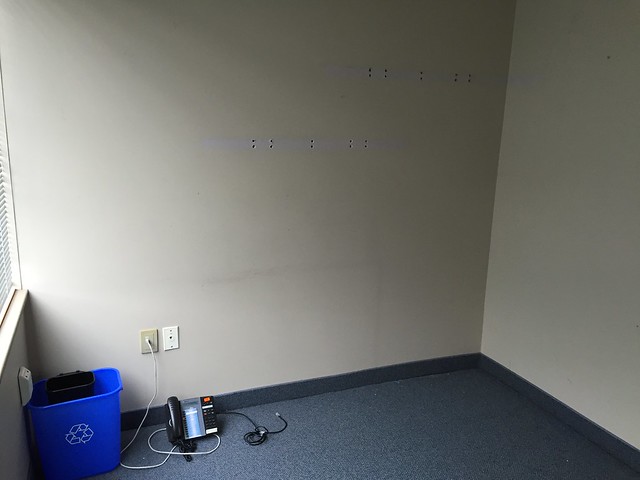beginnings
3 min read
I'm into week # 2 of my new gig at TWU, and it's been a good opportunity to catch up with old friends, read a lot of reports and summaries of what people around here have been thinking about online learning in the last several years, and begin to wrap my head around the context of this project.
On several levels, I'm starting new. Here's my office...

flickr photo shared by CulturalVertigo under a Creative Commons ( BY-SA ) license
So to say that I am starting from scratch isn't much of a stretch. It's not entirely true, as there have been some folks doing some good work online for a decade or so, but there hasn't been a sustained, pan-institutional online initiative. And that is what I am here for.
One of the projects that has led to me being here was a taskforce composed of several senior admin and faculty who published a report on their work identifying several key characteristics of what TWU Online needs to look like. It was encouraging that I agreed with much of the report, at least in essence, if not in the practicalities of implementation. I do think that there is a good solid foundation of people here who have an understanding of the importance of online learning for higher ed, but it's the practicalities of implementation that are missing.
Highlights from the report include the following ideas:
- Relevant, personalized andragogy. As those who choose to engage in online higher ed are typically older than the 18-24 year-olds who constitute residential undergrad programs, they often have families, are working full time and generally don't have time to faff about. They want their learning to be highly contextualized and applicable to their lives.
- Transformational learning. As a Christian university, TWU has always had a focus that is broader than the cognitive domain. While this is certainly not unique to TWU, around here, it is the foundation of everything we do. We seek to develop each student as a whole person mentally, physically, and spiritually. Since TWU began, this has been realized through the relentless focus on community.
- Supportive community. Since the beginning of TWU (as Trinity Junior College in 1962), community has been critical to our success, including, more recently, our very high scores on NSSE. It is through a scholarly community, online or otherwise, that tranformational learning is most likely to occur.
- Structures and services. We recognize that we are behind the game in technological and human infrastructure to support online learning, and that there needs to be an intentional focus on building the structures and supports necessary to make it happen.
So, the challenge is clear...I get to start with an empty office and an old, rickety LMS and build the infrastructure and supportive community needed to support transformational learning through relevant, andragogically sound learning experiences.





@colinmadland network voip (thick white cable) but no phone line (thin black cable)?
JohnRobertson, Aug 12 2016 on twitter.com